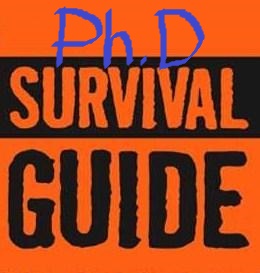iJOBS Blog
Day-in and day-out life in the ivory tower, cube farm, microscope room, or ordinary mad-science laboratory can grind the hope out of any aspiring graduate student. We have already discussed burn out, but it is a topic that never gets old. I am in the midst of a small bout of PhD-fatigue from attending one too many seminars (but really helpful ones), revising manuscripts, and coding my fingers off. As we get closer to finishing our degrees, our outlooks become more dismal than optimistic - it’s always the darkest before the dawn. To alleviate that negativity, remember:
- Your perspective is biased - Talk to someone outside your immediate research area When we spend all day in lab talking about the nitty gritty details, we lose sight of the bigger picture and forget why we fell in love with research in the first place. What is your main hypothesis? Why does your research matter to the rest of the world? Last night, I had dinner with a good friend who was genuinely interested and impressed by my research. I woke up today reinvigorated and ready to attack my research problems with purpose instead of walking into my cube with dread. Forums to connect and share your research woes with peers and non-experts exist both online and in person – find what works best for you and if none of the existing options seem that great, try forming your own support group. Whatever you do, do not isolate yourself.
- Negative results are still powerful and useful - Look for the knowledge you have gained. If I spend a day writing a piece of code that spits out an unexpected answer, the easy emotion to feel is frustration. When a cell study that goes awry or when the results are not significant, we get understandably upset. Scientists perceive negative results as personal failures (but the rhetoric surrounding negative results is changing). Every negative result poses another question: why? If we brush up on our scientific method, a negative result requires us to revise and refine our hypothesis. If we knew the answer, we wouldn’t be experimenting -- which leads me to my last point.
- Everyone is here to work on something unknown - Everyone has something to learn. Part of getting a PhD is exploring something novel. The corollary to exploring something new is that you lack knowledge, data, methods, or tools to answer it immediately. While “fake it til you make it” is one survival strategy, becoming comfortable with your lack of experience or knowledge is actually a strength. It allows you the freedom to say “I don’t know. What do you think?” without overwhelming insecurities. Impostor syndrome is a real condition that plagues the academy. The best PhDs are the ones that realize they know very little but are willing to learn how to answer the tough questions.
